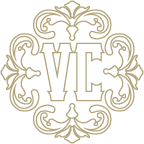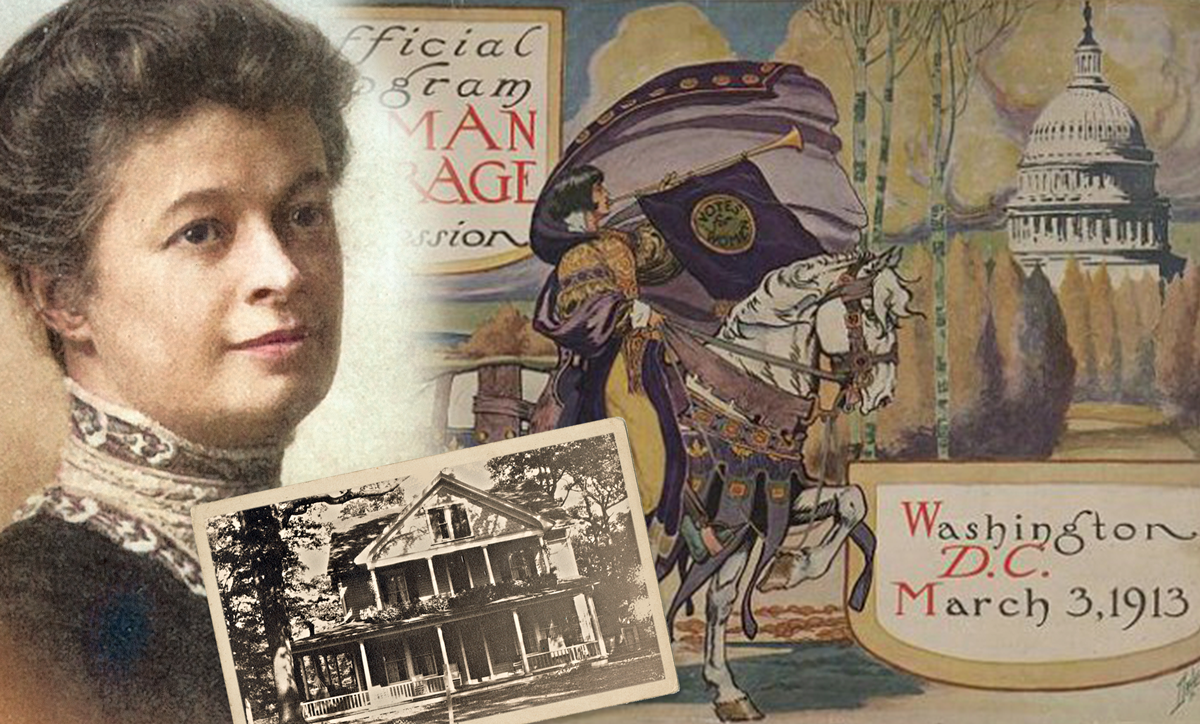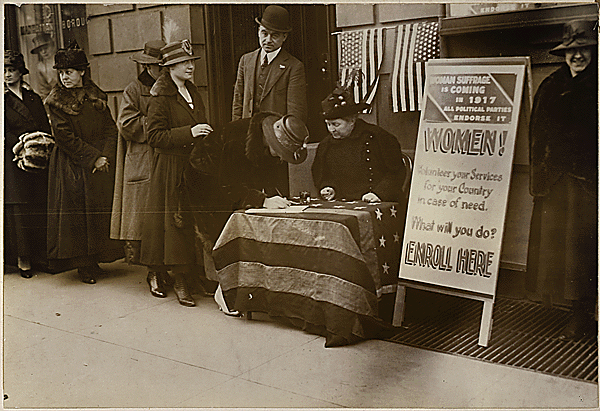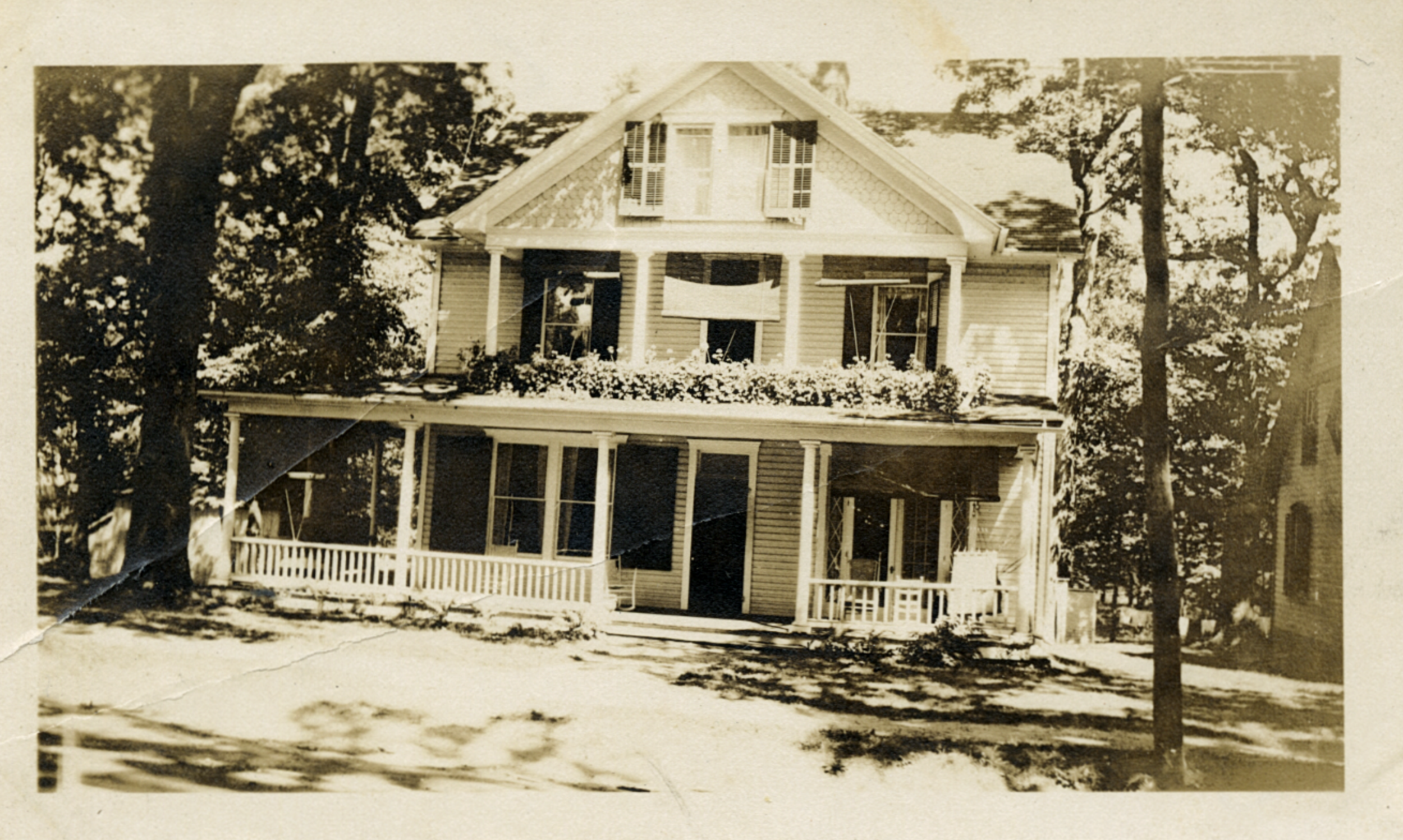Julie Slocum Walker Ruhl [1861-1956]
Sponsored by The J. Hopwood Wooddell Trust
Ruhl cottage, was a mother’s gift to her beloved daughter, Julia, at a cost of $3000. Being a West Virginia resident, and unlike women residing in Maryland, she was able to be a property owner in Mountain Lake Park. Her independence and strong will fed her ultimate notoriety in the Suffrage movement. At the Victorian Chautauqua on Sunday, July 10, this powerful woman will be portrayed by Sallie Wooddell Stuart, whose family restored Ruhl Cottage to embody the Victorian era visually.
Sallie has always been interested in genealogy as a hobby. Once her curiosity about her own family was finally satisfied (she counts Abraham Lincoln, Daniel Boone, and Judy Garland among her cousins), she branched out to help friends answer questions about their own family histories. She has even been contracted to research the histories of particular houses and the previous owners of those houses for the curious-minded. While in the process of compiling a history of another home in Mountain Lake Park, it occurred to Sallie to do the same for her father and stepmother’s house – Ruhl Cottage. It was then that she discovered the vital role its first owner, Julia Walker Ruhl, played in the fight for women’s suffrage and the subsequent ratification of the 19th Amendment.
Julia Walker Ruhl was born in Connecticut in 1861 and graduated from Mt. Holyoke College in 1881– the same year Mountain Lake Park was founded. She taught at Broaddus College in West Virginia before her 1890 marriage to John Ruhl. She was active in the YMCA auxiliary and helped found both the Clarksburg Woman's Club and the Clarksburg Public Library. Ruhl also served as president of the West Virginia Equal Suffrage Association from 1917 to 1920 and was the first president of the West Virginia League of Women Voters from 1920 to 1922. She later served on the Clarksburg City Council. This accomplished woman was a natural leader and earned much acclaim during her lifetime. Ruhl died on June 2, 1956, in Washington, DC.
Women gather to endorse the 19th Amendment
Regarding the Suffragist movement, Ruhl helped unite groups in the West Virginia referendum and national campaigns. Her family spent summers at their Mountain Lake Park cottage in Garrett County and were active in the Methodist Church’s Chautauqua movement. She continued her suffrage work there, supported by other Methodist deaconesses with meetings, speeches, and writings.
While a well-documented suffrage march was being organized in Garrett County to descend on Washington, Ruhl attended the General Federation of Women's Clubs in Chicago. It would have been out of character for Julia to participate in marches since her opinion of protests compounded "the perplexities and burdens of the hour," adding that such campaigns "would have been fatal" in West Virginia, her home state. She basically found protests unbecoming and felt her efforts were better-served meeting with lawmakers in Washington, D.C., who held power to affect change.
With over ten thousand women assembled at the Chicago gathering, Ruhl stood before them as the only woman permitted to speak. She declared herself 'heart and soul', supporting the suffrage movement. This moment may have contributed to a seismic shift by inspiring a groundswell of support for the 19th Amendment nationwide. Maryland followed suit slowly, while the 19th Amendment was ratified on August 18, 1920. The state did not choose to ratify it until almost twenty-one years later, on March 29, 1941.
The Clarksburg Telegram published a cheering message to West Virginia suffragists written from Ruhl’s home in Mountain Lake Park in 1916. Until recently, her important role in establishing voting rights for women had fallen by the wayside. Through a reenactment by Stuart on the Victorian Chautauqua stage, Julia Walker Ruhl will share her outstanding accomplishments, the importance of the early Chautauqua years that encouraged women’s education, and tales of her treasured summer home nestled in Mountain Lake Park.
Where Women Could Learn
Ruhl Cottage was built for Julia Walker Ruhl with seven bedrooms and a wrap-around porch and a second-story balcony. The Wooddell couple’s extensive restoration retained the original yellow clapboard, white trim, green shutters, and historic charm. With ongoing Chautauqua programs geared toward education, Ruhl was enamored with her summers in Mountain Lake Park.
Although raised in the Washington, D.C/Annapolis, Maryland, corridor, Sallie Wooddell Stuart spent most of her childhood summers in Oakland and Mountain Lake Park, Maryland. After high school, she studied linguistics and American history at the University of Nevada, Reno, and received a Master’s of Special Education at the University of Nevada, Las Vegas. When she is not researching, Sallie can take and print photographs, read historical non-fiction, or walk her two rescued pups. She lives in Las Vegas, as do her children, grandchildren, and grandpups.
This is Sallie’s first foray into the sphere of historical reenactment.





